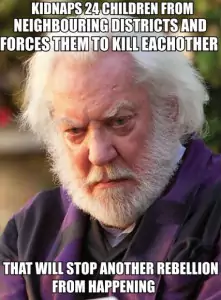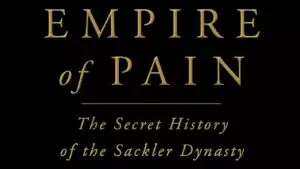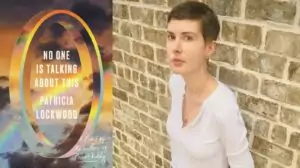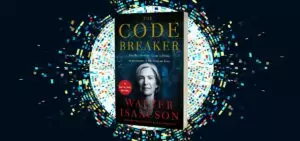Among recently published books, little has provoked such interest in their audiences as “The Hunger Games” by Suzanne Collins. A dystopia about post-apocalyptic North American reality of a distant future has conquered the hearts of many teenagers (and adults) around the world—and it has been translated into 26 languages. Since it was first published in 2008, “The Hunger Games” has been made into a movie, sold over 800,000 copies, and is approved and recognized by numerous critics, writers, and literary organizations. I will take the risk to cross the road to many respected critics and claim the reviewed novel is nothing but another promoted mediocrity. 

✅ AI Essay Writer ✅ AI Detector ✅ Plagchecker ✅ Paraphraser
✅ Summarizer ✅ Citation Generator
The novel is written on behalf of Katniss Everdeen, who lives in the totalitarian state of Panem. Its 12 underdeveloped districts are controlled by a highly advanced metropolis—the Capitol—which embraces the plenitude of the power. Katniss is a 16-year-old hunter, carving out an existence for herself, her sister Primrose, and their widowed mother. One day, Katniss and her former schoolmate Peeta have to participate in “Hunger Games”: an annual reality show in which participants kill each other to entertain the audience. After numerous misfortunes and challenges, Katniss and Peeta both survive, though by the rules there must be only one survivor.
To tell the truth, I barely managed to finish “The Hunger Games.” After reading such novels as “1984,” “Brave New World,” “Dr. Strangelove,” or even the recent “Metro 2033,” where dystopia and the post-apocalypse are shown in all their grimness, “The Hunger Games” looks, to put it mildly, unconvincing. This is perhaps the best word to describe literally everything in this novel, starting with the main characters and ending with the world events that take place. If you are a logical person able to think critically, try not to take this book too close to heart.
The first instance I was surprised about the book’s unconvincing nature was when the domestic policy of Panem was noted. If the society had reached the idea to make children kill each other for entertainment, why bother about schools for them? Why spend resources on education, financial support, or hospices, instead of making people work as slaves 24 hours a day? Hungry, unemployed, educated young people able to fend for themselves look like the least preferable phenomenon for a totalitarian society. My other serious claim is for the main character, Kitniss. Even though she is a teen, she can give odds to Bear Grylls himself. I bet Grylls, unlike Kitniss, cannot shoot from a bow as quickly as from a machine gun. If Grylls laid unconscious on the ground for two days, he would most likely have pneumonia—whereas Kitness did not even sneeze. Also, if anybody—be it Bear Grylls or Chuck Norris himself—had a penetrating knife wound in their head, they would most likely die; Kitniss survived, and did not even turn into a vegetable after such a lobotomy.
Though perhaps she did. For the story told on behalf of the main character, the novel contains amazingly little description about her emotions. This is twice as strange considering that Kitness has to kill her peers, or be killed herself; however, this does not seem to bother her too much, which is disturbing in terms of her mental health. Neither will you find a holistic (or at least convincing) depiction of the world, history, or the society. Though a reality show where teenagers have to kill each other would be horrible and inhumane, I cannot remember the author’s reflections on the moral aspect of this problem; instead, “The Hunger Games” contains detailed descriptions of clothes and other meaningless stuff. It seems like the Games are a background picture for showing how teens run here and there, as if they were hiking, not surviving.
At the same time, the novel has several advantages. It is dynamic, easy to read, and full of action scenes, which makes it attractive to the 13+ audience. It is much less soapy than its main competitor (in my opinion): “Twilight.” “The Hunger Games” had a potential to become a high-quality franchise if its flaws were corrected in the following books.
If you want to read a thrilling story about children hunting each other, check out “The Lord of the Flies.” “The Hunger Games,” at least now, looks like a raw sketch for further, more detailed novels.
Follow us on Reddit for more insights and updates.





Comments (0)
Welcome to A*Help comments!
We’re all about debate and discussion at A*Help.
We value the diverse opinions of users, so you may find points of view that you don’t agree with. And that’s cool. However, there are certain things we’re not OK with: attempts to manipulate our data in any way, for example, or the posting of discriminative, offensive, hateful, or disparaging material.
Comments are closed.